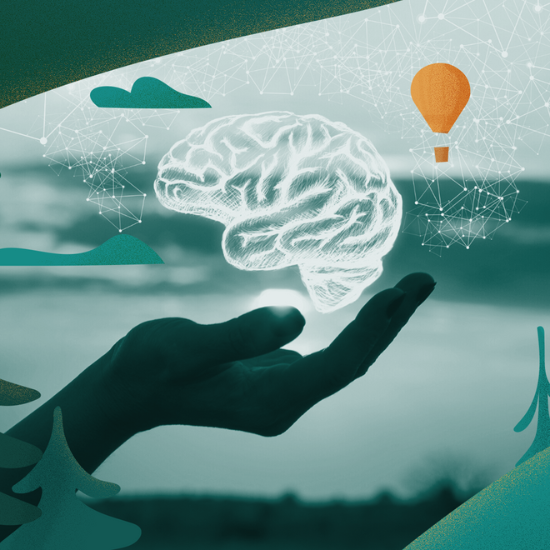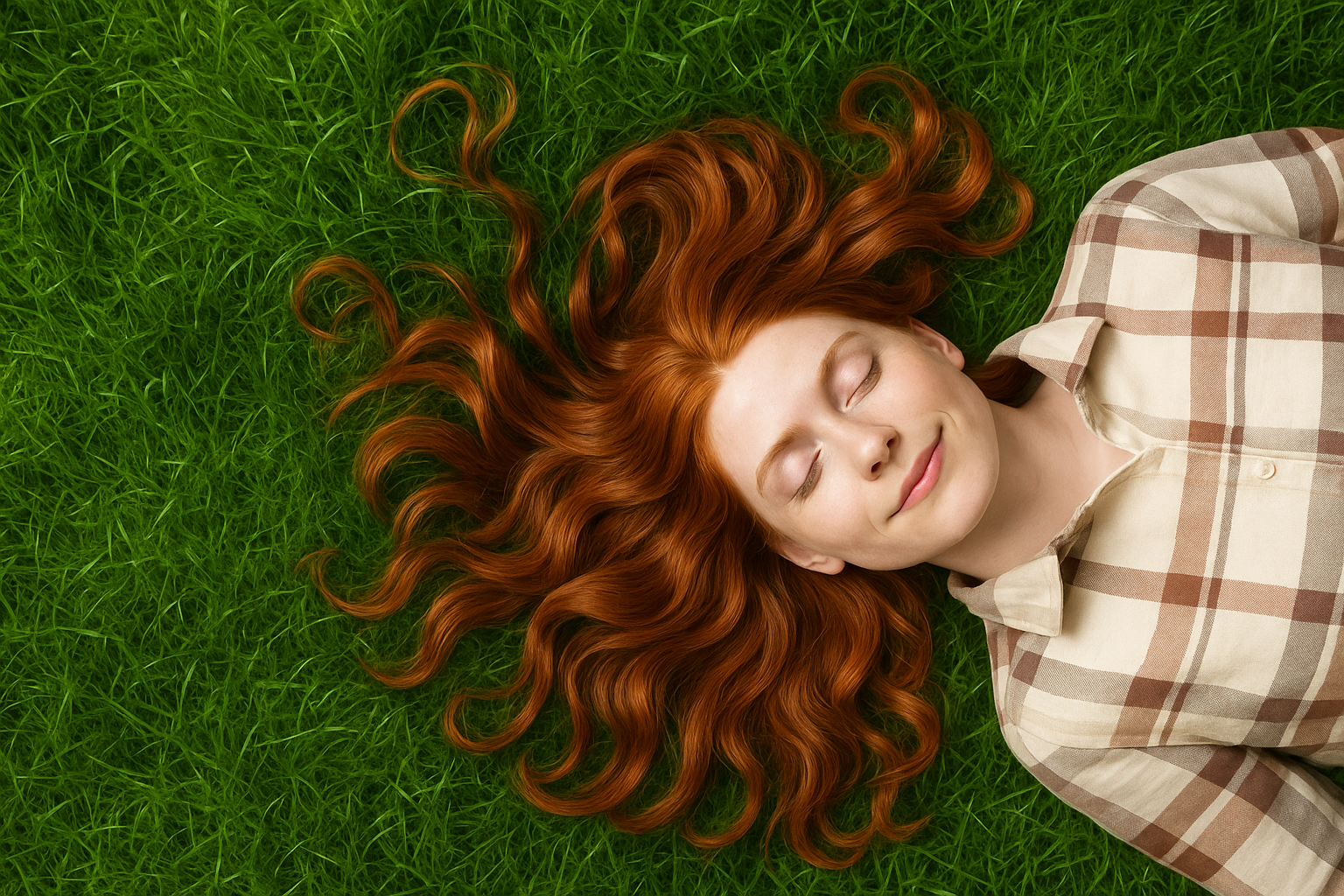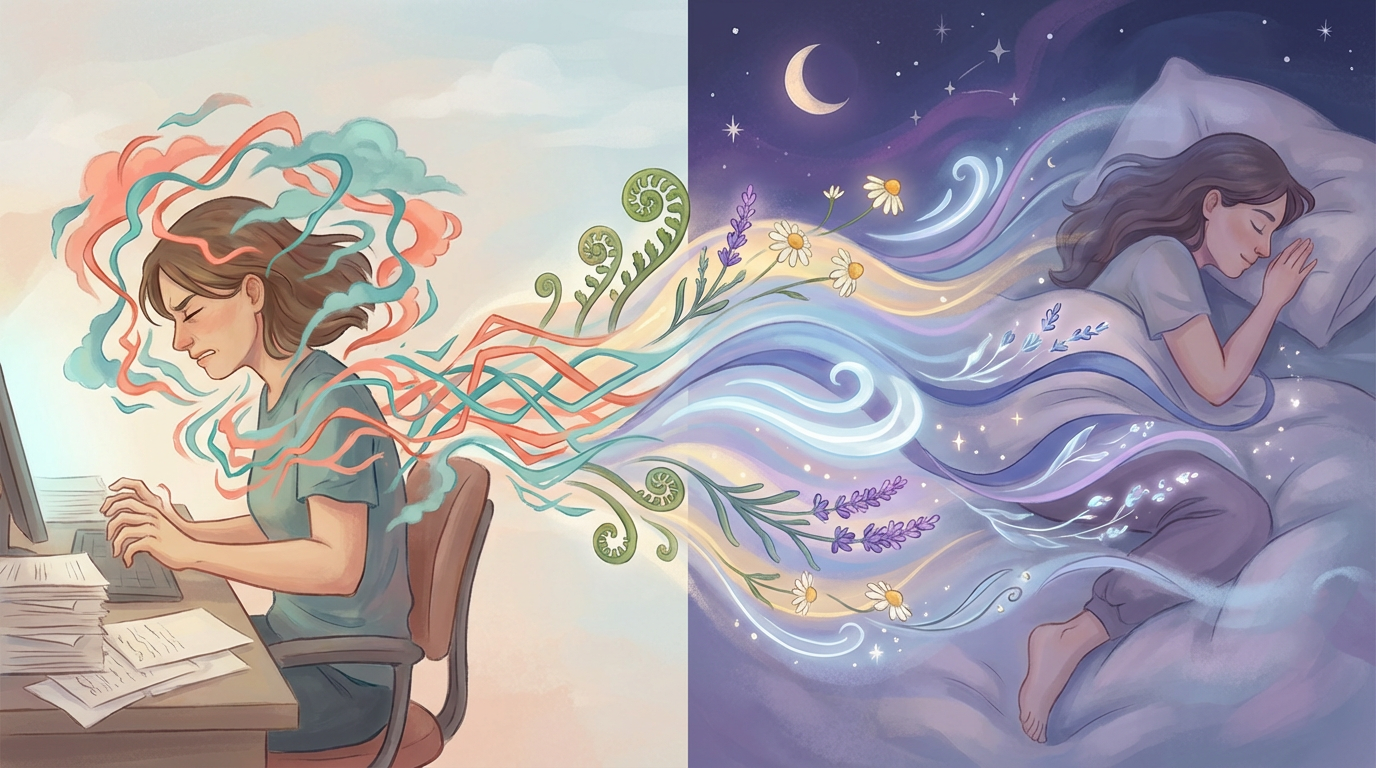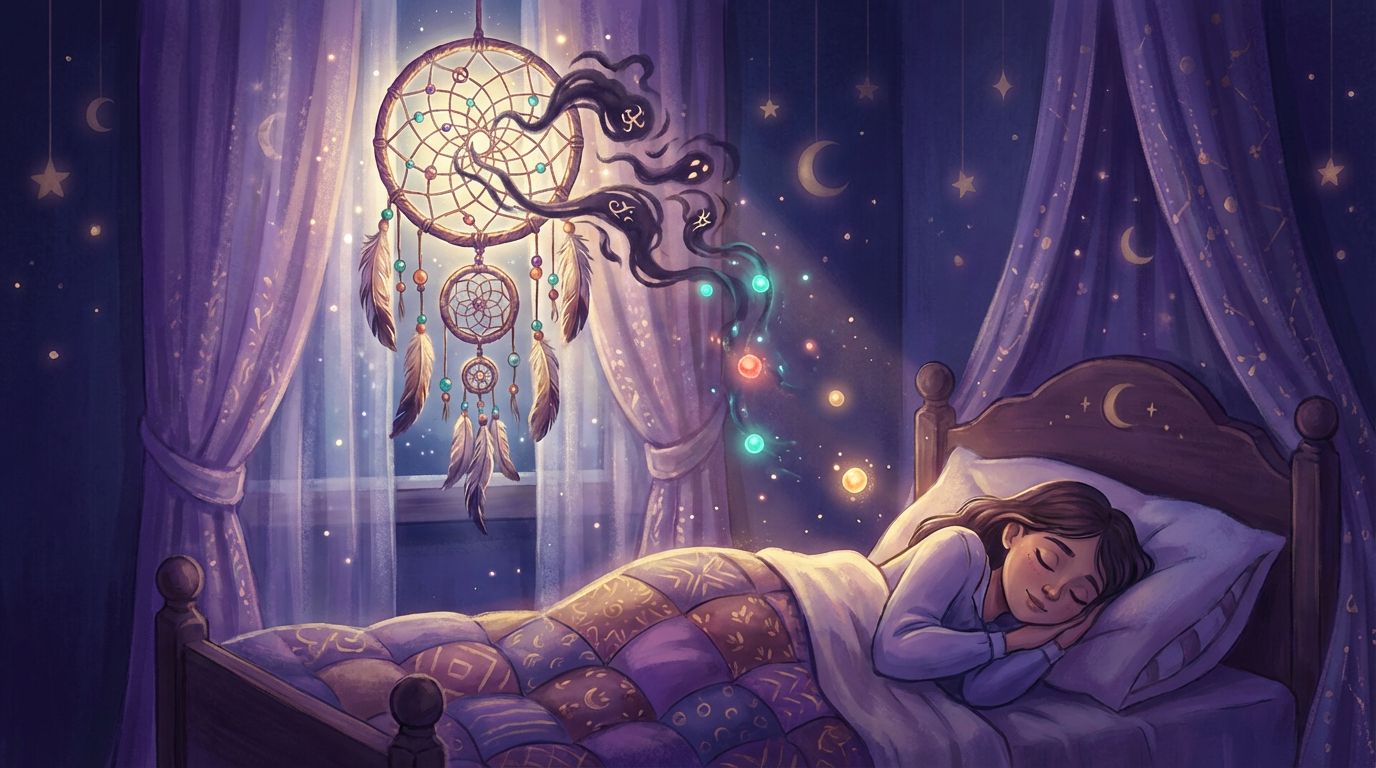
Psychology of Dreams
Most people think of dreams as nothing more than the random firings of a tired brain. However, recent research has shown that dreams are quite complex and can offer valuable insights into our psychological state.
Dreams can be mysterious and interesting, but what do they mean? Are they just random images that our brains produce during sleep, or is there something more to them? In this post, we will explore the psychology of dreams and discuss common theories on why do we dream, plus ways they can be used to improve our lives.
What are Dreams?
Dreams are a normal part of sleeping. Dreams are a sequence of images, ideas, emotions, and sensations that occur in the mind during certain stages of sleep.
The content and purpose of dreams are not fully understood, although they have been a topic of scientific speculation and a subject of philosophical and religious interest throughout recorded history.
Dreams mainly occur in the rapid-eye movement (REM) stage of sleep—when brain activity is high and resembles that of being awake. REM sleep is characterized by intense brain activity and eye movements.
People usually have between three and five periods of REM sleep per night. Most dreams occur in REM sleep. However, people can dream during different sleep stages.
Researchers believe dreams may help people process emotions, learn, and solve problems. Although dreams are mostly a product of the sleeping brain, they may also be influenced by what happens to a person during the day.
Some findings suggest that dreams may be linked to real-world events like illness, grief, or trauma. Other research indicates that dreams may be meaningless or random activity in the brain. Scientists continue to study the function and purpose of dreaming.
Take a look at our vivid dreams article.
What About Lucid Dreaming?
Lucid dreaming is a state of consciousness in which the individual is aware that they are dreaming. This can range from having a vague sense that something isn't quite right to being fully aware of the dream environment and controlling the dream characters and events.
During REM sleep, people often experience lucid dreams, when dreaming is most vivid. However, it is also possible to have brief periods of lucidity during non-REM sleep.
There are a number of techniques that can be used to induce a lucid dream, such as keeping a dream journal and reality testing (checking throughout the day to see if you're awake or dreaming).
Learn What does it mean if there are cats in my dream
Some people also use lucid dreams to explore their unconscious minds and work through personal issues. Lucid dreaming can be a fun and interesting experience, but it's important to be aware of its risks.
In particular, people with mental health conditions should avoid trying to induce lucid dreams without professional guidance, as the experience could exacerbate symptoms.
What About Nightmares?
Nightmares or bad dreams are a type of dream that can cause a feeling of fear, terror, or dread. They typically occur during the later stages of sleep, when dreams are more vivid.
For most people, nightmares are rare and don't cause long-term problems. However, some people experience them frequently, leading to sleep disturbances and other difficulties.
Some evidence suggests that nightmares may be caused by trauma or stress. In addition, certain medications and substances (such as alcohol) may trigger them.
What do Dreams Mean?
Although Freud's theories may be controversial, there is no doubt that they have profoundly impacted our understanding of dreams and their meanings.
Freud believed that dreams are a window into our deepest anxieties and desires and that they often relate to repressed childhood memories or obsessions.
In addition, he believed that almost every dream topic, regardless of its content, represented the release of sexual tension.
In Freud's Interpretation of Dreams, he developed a psychological technique for interpreting dreams and a series of guidelines for understanding the motives and symbols that appear in them.
Although his theories may be disputed, there is no denying that they have shaped our understanding of dream formation and the role of dreams in our lives.
The History of Dream Interpretation
Dreams have been a source of curiosity and fascination for people throughout history. The earliest recorded dreams date back to around 5000 years ago, when they were documented on clay tablets in Mesopotamia.
In the Roman and Greek periods, it was believed that dreams were messages sent from one or more deities, from deceased people, and that they could predict the future. There were also cultures that practiced dream incubation, in which individuals would intentionally cultivate dreams of prophecy. While the interpretation of dreams has changed over time, they continue to be a source of mystery and intrigue.
As we learn more about the brain and how it functions during sleep, we may be able to better understand the purpose of dreams and what they can tell us about our subconscious minds.
Why Do We Dream- the Psychology Behind It
There are many theories about why do we dream, but the most widely accepted explanation is that dreams serve as a way to:
- Aid memories consolidation
- Process emotions
- Explore desires & fears
- Train survival instinct for fight or flight
The reason we dream is still unknown, but scientists believe it could be a combination of the different reasons above rather than any particular theory.
According to many researchers, dreams may serve an essential function for our mental, emotional and physical health, while some still believe that they may not serve any real purpose at all. There's yet to be a single consensus on dream psychology, but below are popular theories.
Dreams reflect your innermost desires and struggles
Dreams have long been a source of fascination for people worldwide. While the interpretation of dreams has varied dramatically from culture to culture, one theory has captured people's imaginations for centuries.
Sigmund Freud, the father of psychoanalysis, suggested that dreams reflect our innermost desires and struggles. Freud believed that we are driven by repressed and unconscious desires, such as aggressive and sexual instincts.
While many of his assertions have been debunked, research suggests there may be some truth to his ideas. The dream rebound effect, also known as the dream rebound theory of dreaming, suggests that suppression of thought tends to result in dreaming about it.
Whether you believe your dreams reflect your subconscious desires or not, there is no denying that they can be interesting and thought-provoking.


Dreams are Your Brain's Way of Sorting Through Information
The Activation-Synthesis Hypothesis was first proposed by Harvard scientists (J. Allan Hobson and Robert McCarley) in the 1970s and is still the most widely accepted explanation for why do we dream. The hypothesis states that dreams result from the brain's attempt to make sense of random electrical signals generated during REM sleep. According to this, memory consolidation, emotion management, and exposure to external stimuli may all contribute to dream content.
These signals originate from the thalamus, responsible for sending sensory information to the cortex. When the thalamus is active, it causes the cortex to become more aroused, creating random thoughts and images of vivid and sometimes bizarre dreams.
According to the activation-synthesis theory, dreams are a combination of randomness that appears to the sleeping mind and is brought together meaningfully when awake. In this regard, dreams may encourage the dreamer to discover new links, develop creative ideas, or have artistic epiphanies in their waking lives.
Although the Activation-Synthesis Hypothesis does not explain everything about dreaming, like why dreams have the contents. However, it remains the most plausible explanation for why we have dreams.
Dreams Aid in Memory Consolidation
The information-processing theory suggests that dreams are a way for the brain to process and make sense of the day's events.
According to this theory, the dream state is when the brain is free to sort through memories and experiences, discarding those that are no longer relevant and incorporating those that are important.
This allows individuals to Wake up feeling refreshed and better understand the world around them. While the information-processing theory is just one way to explain the function of dreaming, it has been supported by several studies.
For example, research has shown that people tend to dream about personally significant events, such as trauma or major life changes. In addition, studies have shown that people often dream about things they have been thinking about during the day or the previous day.
This suggests that dreams provide a way for the brain to process and make sense of information. According to sleep experts, this theory is backed up by scientific study, which has demonstrated that dreaming about performing complex things has improved some people's ability to perform them.
Also, during REM sleep, studies have shown that low-frequency theta waves are more active in the frontal lobe, similar to when people are learning, storing, and remembering information while awake.
Talking about the science behind this, the Brain Science Advances journal published a 2009 review on dream theories, which suggest that something called "sleep-dependent memory consolidation" exists.
Also, it added that memory processing occurs during REM and non-REM (NREM) sleep. According to this theory, because dreams frequently mirror events that occur while a person is awake, the resting mind is retrieving, digesting, and learning from that information.
The dream stage is also thought to be the point at which old memories are lost, updated, or modified.
Dreams Aid in Developing Creativity
Dreams have been a source of inspiration for artists and writers throughout history. From Michelangelo to Mary Shelley, many creatives have credited their dreams with sparking their imaginations and giving them new ideas. But does dreaming spur creativity, or are these just coincidences?
There is some scientific evidence to suggest that dreams can indeed boost creativity. A study published in the journal Neuropsychologia found that people who remembered their dreams were better able to come up with creative solutions to problems than those who didn't.
The researchers believe that this is because dreaming allows the brain to make new connections and associations that it wouldn't otherwise make. So if you're feeling stuck in a rut and are looking for some new ideas, maybe it's time to start paying more attention to your dreams. You never know what they might inspire you to create.
Dreams are Ways of Training our Survival Instinct
The Threat Simulation Theory (TST) of dreaming proposes that the function of dreaming is to simulate threatening events to provoke a stress response and enhance survival odds in future real-life encounters with similar threats.
According to threat simulation theory, dreams serve as a mental rehearsal that allows individuals to try different courses of action and develop effective coping strategies. Dreams also provide a safe forum for expressing emotions such as fear and anxiety without provoking a full-blown stress response.
While scientists are still debating the theory, there is evidence that supports its premise. For example, studies have shown that people who regularly have nightmares are more likely to have higher stress tolerance and resilience levels in real-life stressful situations.
In addition, TST may help to explain why we often dream about familiar people and situations, as these are the most likely to trigger a stress response. As such, threat simulation theory provides a compelling explanation for the adaptive function of dreaming.
Dreams Reflect Our Lives
Dreams are often seen as a reflection of a person's waking life. The continuity hypothesis states that dreams incorporate conscious experiences into their dream content. Dreams often appear as a patchwork of memory fragments rather than a straightforward replay of waking life.
However, not all dreams are based on waking life experiences. Some dreams may be symbolic or have a hidden meaning. External factors, such as stress or medications, can also influence dreams. Ultimately, the interpretation of dreams is a personal experience and can vary from person to person.
Dreams Help You Process Emotions You Might Be Suppressing
According to this theory, dreams help us process and cope with our emotions or trauma in the safe space of slumber. Diane C. Marti, Ph.D. explains, "In a dream, we can access and process emotions that we might have difficulty dealing with when we are awake." She adds that dreams provide a way for our brains to release pent-up emotions in a safe and controlled environment.
Some research suggests that people who have experienced trauma are more likely to have nightmares. A 2006 study published in the journal Sleep found that people who had experienced a traumatic event were three times more likely to have nightmares than those who had not.
While dreams may help us process our emotions, it's important to note that they are not always accurate representations of reality. Dreams can be influenced by our thoughts, feelings, and experiences. As a result, they may sometimes contain elements of fantasy or wish fulfillment.
What does Psychology say About Dreams?
Dreams have been a source of fascination and mystery throughout history and continue to be the subject of vigorous debate among scientists and laypeople alike. Although there is no consensus on what Dreams actually are, psychologists generally agree that they are a manifestation of our deepest fears, desires, and anxieties.
Alan Eiser, a psychologist and a clinical lecturer at the University of Michigan Medical School in Ann Arbor, says dreams often deal with personal conflicts and emotional struggles that we are experiencing in our daily lives and can be highly meaningful.
However, dreams can also be nonsensical and bizarre, seemingly devoid of any sort of connection to our lives. Despite their enigmatic nature, dreams can provide valuable insights into our innermost selves and are well worth exploring.
What's the Length of a Dream?
We know that dreams occur during the REM (rapid eye movement) phase of sleep, which is when we are most deeply asleep. It is believed that dreams help to process memories and emotions, and they may also be a way for our brains to practice problem-solving.
As for their length, typical dreams last anywhere from a few seconds to 20 or 30 minutes. However, most people only remember their dreams if they are woken up during the REM phase. On average, people have three to five dreams per night, although some have up to seven. For most of us, dreams quickly fade after we wake up.
Ultimately, there is still much mystery surrounding dreams and why we have them. But that doesn't stop them from captivating our imaginations.


Other Theoretical Approaches to Dream
From a psychological perspective, there are many different theoretical approaches to dreams and their interpretation. Freud's psychoanalytic theory suggests that dreams are a way for the unconscious mind to process and release repressed thoughts and feelings.
Other psychological theories view dreams as serving different purposes, such as providing insight into one's personality (humanistic theory), helping one learn new information or habits (behavioral theory), or organizing and making sense of memories (cognitive theory).
More recent neuroscientific research suggests that dreams may serve a role in memory consolidation and emotional regulation. Ultimately, there is no one correct interpretation of dreams - what matters most is how dreamer makes meaning of their own individual experiences.
The Humanist Approach to Dreams
The humanistic approach to dreaming is based on the idea that humans constantly strive to reach their full potential. Dreams are seen as being about the self—the person having the dream—and how that person deals with external environments and stimuli.
According to humanistic theorists, dreams aim to help the mind regain a sense of balance. Dreams are interpreted in terms of how they can help dreamer improve their lives and reach their potential. This approach is based on the work of psychologists such as Carl Jung and Abraham Maslow.
Jung believed that dreams were a way for the unconscious mind to communicate with the conscious mind, and he used them to develop his theories about the nature of the psyche. Maslow, meanwhile, saw dreams as a way to access hidden parts of the self—parts that might be holding us back from reaching our full potential.
The humanistic approach to dreaming has been criticized for being too subjective and interpretive, but it remains an influential perspective within psychology.
The Behavioral Approach to Dreams
The behavioral approach to dreaming was first proposed by Sigmund Freud, who believed that dreams were a way for the unconscious mind to express itself. However, the behaviorist school of thought rejects this idea, instead viewing dreams as a result of environmental stimulation experienced by the dreamer.
Behaviorists believe that all mental processes are based on observable behavior and do not focus on the memories or desires represented by dreams. Instead, they focus on how dream content is affected by external factors such as recent experiences or current emotional states.
While the behavioral approach does not offer insights into the hidden meaning of dreams, it can be useful for people who want to understand how their dreams are influenced by their waking life.
The Cognitive Approach to Dreams
The cognitive approach to dreaming is centered around the internal mental processes that occur while an individual is dreaming. This approach focuses on how individuals understand, think, and know about the world around them. The cognitive theory explores how dreams are a way to remember, learn, and process information received throughout the day.
This theory does not view dreams as representing repressed memories or desires like the behavioral approach. Instead, the cognitive approach holds that dreaming is a way to help individuals make sense of their waking lives and to sort through the vast amount of information they take in daily. This approach can help understand why people have dreams and what purpose they serve.
Can Two People Have the Same Dream?
There have been some documented cases of people sharing dreams, but it is fairly rare. The best-documented cases involve therapist-client shared dreams in Anthony Shafton's 1995 book Dream Reader. However, there has been very little scientific study dedicated to "mutual dreaming" for several reasons.
First, as mentioned, it's not a common occurrence. Secondly, studying can be difficult because it's hard to find subjects willing to talk about their dreams, and it's even harder to find two people who claim to have had the same dream.
Even if you could find two people who say they've had the same dream, how would you know if they were telling the truth? And finally, what would that mean even if you could verify that two people had the same dream? Does it mean that they are connected in some way?
Or does it just mean that they had similar experiences in their life that led them to have similar dreams? There is still much mystery surrounding dreams, and mutual dreaming is just one more piece of the puzzle. However, there are a few possible explanations for how two people could dream the same. One theory is that our dreams are influenced by our waking lives and the collective unconscious.
If two people share many of the same experiences, it's not surprising that their dreams might have some similarities. Another possibility is that some dreams are simply more universal than others.
For example, many people have dreamed about being chased or falling off a cliff. These types of dreams may be so common because they tap into our deepest fears and concerns. Whatever the reason, shared dreaming is a fascinating phenomenon that warrants further study.
Why Do People Tend to Forget their Dreams
Dreams are a normal part of sleep, but why do people tend to forget them so quickly? One theory is that dreams are simply a by-product of brain activity during sleep and are unrelated to any deep psychological Meaning.
Because they serve no purpose, the brain quickly discards them. Another theory suggests that dreams are a way for the brain to process emotions and experiences from the day. Dreams may be a way to sort through problems and feelings that we can address during waking hours. However, this theory doesn't explain why some people remember their dreams while others don't.
It's possible that dream recall is simply a matter of practice: the more you pay attention to your dreams, the more likely you are to remember them. Or it could be that some people are simply better at retaining information from their sleep.
However, several factors can potentially influence how people remember their dreams, how much of the dream remains intact, and how vivid it is.
- Age - electroencephalographic (EEG) activity during sleep changes as people age. Evidence suggestsdream recall ability progressively decreases as a person gets older.
- Gender differences - Women generally recall dreams more often than men and report longer, more emotional dreams. In a study centered on how American men and women dream, men dream about other men twice as often as they dream about the opposite sex (67% vs. 33%). On the other hand, women dream almost equally about both sexes (48% men, 52% women).
- Sleep deprivation - People who are sleep deprived are more likely to report an increase in dream recall and nightmares (bad dreams).
- Sleep disorder - People with narcolepsy, a condition that causes periods of sudden sleepiness, often report very vivid and lifelike dreams.
- Medications - Some medications, such as those used to treat anxiety and depression, can impact dream recall.
- Substance abuse - Drugs and alcohol can lead to changes in dreaming. People who abuse substances often report strange, bizarre, or vivid dreams.
- Pregnancy - Women often report more nightmares during pregnancy. Dreams during pregnancy can be influenced by hormones and the stress of carrying a child.


Why Do I Have Recurring Dreams?
Some experts believe that recurring dreams are usually about deeper, long-term issues that a person is dealing with. This could include personality traits, defense mechanisms, coping mechanisms, and beliefs about the world.
In some cases, recurring dreams may be happy or positive. However, more often than not, these types of dreams are anxiety-inducing. If you have recurring dreams, it might be worth talking to a therapist to explore what those dreams could mean for you.
Can Dreams Predict the Future?
Many people believe that dreams can offer insights into the future, but there is currently little scientific evidence to support this claim. Some research suggests that certain types of dreams may be associated with future events, such as the onset of illness or mental decline, but more studies are needed to confirm these findings.
In the meantime, the jury is still out on whether dreams can predict future events. However, there is no doubt that they provide a fascinating glimpse into the inner workings of our minds.
Dream Dive Crying
Is it Possible to Control Dreams Today?
Dreams have been a source of fascination for people throughout history. Many cultures believe dreams are a way to communicate with the gods or gain insight into the future. Today, we know that dreams are primarily a way for our brains to process information and sort through memories.
However, that doesn't mean that we can't influence our dreams. There are a few different ways to do so. One method is "dream incubation," in which you give yourself pre-sleep suggestions to dream about a specific topic. Another method is called lucid dreaming, in which you are aware that you are dreaming, though physiologically, you are still asleep.
Sometimes people experience this type of dreaming spontaneously. Others specifically set out to train themselves to do this. In many instances, it is possible to learn how to increase lucid dreaming and thereby increase your capacity to affect the course of the dream events as they unfold.
So whether you're looking to explore the depths of your subconscious or just have some fun while you sleep, learning how to control your dreams is worthwhile.
The Bottom Line
Although the study of dreams is still in its infancy, researchers have already made some astonishing discoveries about the meaning and function of dreams. Dreams may not always be accurate interpretations of our real-life experiences, but they can offer us a fascinating glimpse into our unconscious minds. They also appear to play an important role in mental and physical health.
So what do your dreams mean? The answer to that question may never be fully understood, but it is worth exploring. What has been your most interesting or memorable dream?






















